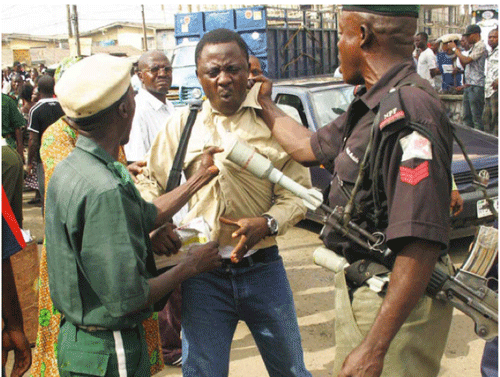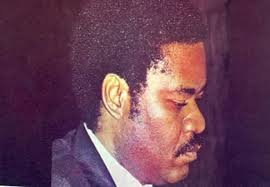The United Nations set aside November 2 as International Day to End Impunity for Crimes against Journalists, in memory of two French journalists killed in Mali in 2013. Senior Correspondent, ONYEWUCHI OJINNAKA, chronicles the activities that marked the day.
November 2 every year has been designated by the United Nations (UN) as a special day to condemn all attacks against journalists and media workers. It is declared as the International Day to End Impunity for Crimes against Journalists.
In the past decade, 700 journalists have been killed for bringing information to the public. On average, it is one death every week. In nine out of 10 cases, the killers go unpunished. Impunity leads to more killings and is often a symptom of worsening conflict and the breakdown of justice systems.
United Nations Education, Scientific and Cultural Organisation (UNESCO) has warned that impunity damages whole societies by covering up serious human rights abuses, corruption and crime. Governments, civil society, the media and everyone concerned in upholding the rule of law are being asked to join in the global effort to end impunity.
The United Nations General Assembly (UNGA) adopted Resolution A/RES/68/163 at its 68th session in 2013 which proclaimed November 2 as the International Day to End Impunity for Crimes against Journalists (IDEI). The Resolution urged member states to implement definite measures countering the present culture of impunity.
The date was chosen in commemoration of the assassination of two French journalists, Ghislaine Dupont and Claude Verion, in Mali on November 2, 2013.

This landmark resolution condemns all attacks and violence against media workers. It also urges member states to do their best to prevent violence against media workers, especially journalists, to ensure accountability, bring to justice perpetrators and ensure that victims have access to appropriate remedies. It further calls upon states to promote a safe and enabling environment for journalists to perform their work independently and without undue interference.
In 2014 alone, the UNESCO Director-General, Irina Bokova, condemned the killing of 87 journalists, media workers, and social media producers of public interest journalism. In 2012, the deadliest year for journalists, 123 cases were condemned.
According to International Federation of Journalists (IFJ) statistics, 118 journalists lost their lives while carrying out their duties in 2014. In recent years, only one out of 10 killings in the media is investigated. This figure does not include the many more journalists who on daily basis suffer from non-fatal attacks, including torture, disappearances, arbitrary detention, intimidation, sexual harassment and harassment in both conflict and non-conflict situations.
Reopen Giwa, other cases
While marking the day, the president of Nigeria Union of Journalists (NUJ), Abdulwaheed Odusile, used the occasion to demand the reopening of the case of Dele Giwa, one of the founders of Newswatch magazine, who was assassinated through a letter bomb on October 6, 1986, and others. He condemned in totality the unwarranted attacks on journalists, saying that such attacks should be investigated. He cited the case of Giwa and called on the federal government to reopen the investigation and bring the culprits to face the wrath of the law.
Mentioning names of journalists such as Dele Giwa, Bayo Owu, Abayomi Ogundeji, Chris Imodibe, Agbroko Godwin, Bagauda Kaltho, Edoh Ubagwu and others who were killed by yet-to-be-known assassins, the NUJ president canvassed that government should reopen their cases, he said to the best of his knowledge, nobody has been arrested or implicated in any of the killings.
According to him, if the cases are not reopened and properly investigated by the police, it will aggravate the level of impunity against journalists.
“We are very important in the society. We are the fourth estate of the realm. We need investigation in these killings. Journalists are being attacked; we need protection,” Odusile emphasised.
The NUJ president posited that if the killings are not investigated, “it will dampen the morale of our colleagues. Dele Giwa was killed 29 years ago and since then, nothing has been heard about his killers.”.
Odusile decried the non-payment of salaries to journalists, describing it as a psychological attack on the pen mongers.
“It is also impunity against journalists,” he said.
“The owners of such organisations should be brought to book because it is also impunity,” he further said.
Symposium in Benin City
In Benin City, Edo State capital, some journalists under the auspices of Edo Forum against Impunity, while marking the day, called on government at all levels to create enabling environment for journalists to carry out their duty without molestation. The group organised a one-day symposium to sensitise the public and media practitioners on the dangers of impunity in developing society.
President of the forum, Comrade Befi Efe, while speaking at the symposium, said the media remains a critical foundation for dissemination of information, for prosperous, open and egalitarian society.
He noted that the media are platforms which allow citizens to access information and hold government accountable. He bemoaned that hundreds of journalists and media workers are being killed, tortured, harassed and even placed incommunicado, stressing that these things are done with impunity. He called on government to protect the rights of media workers and activists.
Coordinator of African Network on Environmental and Economic Justice (ANEEJ), Rev. David Ugolor, at the event, called for a holistic reform of the police force and total independence of the judiciary.
Another activist, Comrade Austin Osakwe, insisted that the civil society must completely set up a task force which duty will be to pay attention to the past, present and future cases of extra-judicial killings. He said the task force must be given support and information to succeed in its assignment.
“We must equip them. We must give the task force support,” he stressed.
In the same vein, the National Human Rights Commission (NHRC) has advocated for information sharing between journalists and security operatives, while also calling for the payment of salaries to journalists.
In Lagos
Similarly, the chairman of Lagos State Council of Nigeria Union of Journalists, Comrade Gbolahan Deji Elumoye, posited that the authorities, especially the police, are not living up to expectation, as they have been unable to unravel the killers of “our colleagues”.
He urged the government to revisit the cases of journalists that were assassinated.
“We are demanding that the police should reopen investigations. In the United Kingdom, no murder goes unnoticed and investigations are seriously carried out. The authorities should revisit some of the cases. Previously, people were afraid to come and testify and even Kayode Soyinka was accused by the then AIG (Assistant Inspector General) of stalling investigations,” he said.
Speaking on non-payment of salaries to journalists, Elumoye said it is quite unfortunate the trauma journalists are going through. He said the print media are the major culprit. “They make money but refuse to pay.”
He mentioned many media houses that owe up to 10 months salaries to their staff, saying that NUJ had taken it up with some of them. “We have taken it upon ourselves to fight for the rights of these journalists. Non-payment of salary to journalists is also impunity against them and therefore we must fight for their rights.”
According to him, legally, the union has also consulted some lawyers to see how to address the issue of non-payment of salaries.















